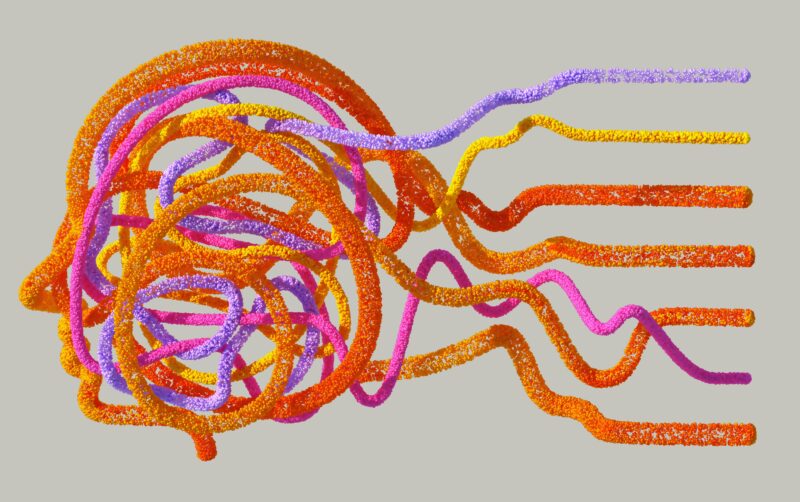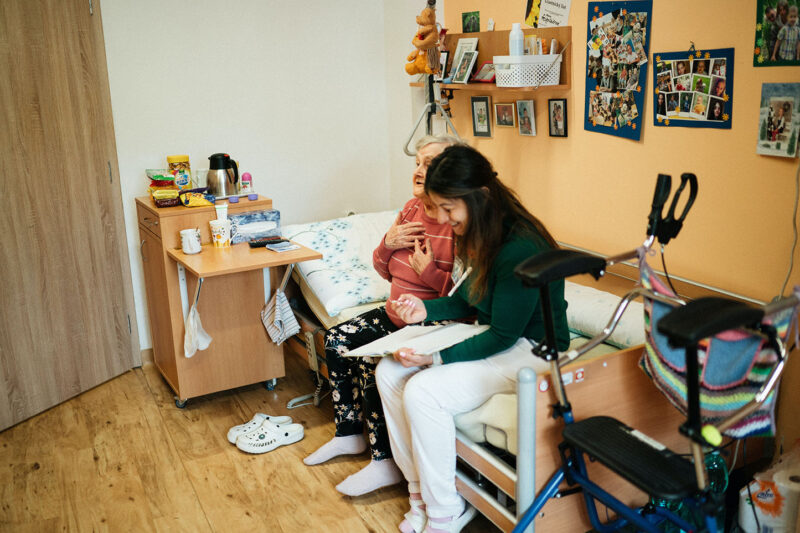
The Pastoral Formation Institute is licensed by MFHEA
(Licence #: 2013-FHI-023) as a Further and Higher Educational Institute. The Postgraduate Certificate in Pastoral Care and Chaplaincy in Schools is accredited at EQF/MQF Level 7, as a Higher Education Programme.

Students who successfully complete this course may apply for the Get Qualified Scheme which will enable them to benefit from a tax credit of 70% of the costs incurred (i.e. €595.00 will be refunded for this course).
Schools provide a holistic environment that fosters the pursuit of truth, the development of healthy critical thinking, and the creation of spaces where individuals of diverse faiths can question, reflect, pray, and build communities of mutual acceptance. In this challenging yet enriching context, the balance of faith and reason, supported by pastoral and biblical theology, offers a solid foundation for School Pastoral Care and Chaplaincy.
Moreover, Pastoral Care and Chaplaincy in schools serve as bridges connecting faith with culture, and spirituality with the technocratic realm of contemporary society. The promotion of this mindset and its practical application are strengthened by empowering school leadership and pedagogy to embrace and uphold essential values, particularly Gospel values, which are crucial in our empirically driven, digitally oriented society.
This will be achieved through:
- A deeper introduction to and study of the bridge between faith and reason, biblical and pastoral theology (Modules 1 and 2).
- An in-depth understanding of the role of Pastoral Care and Chaplaincy in a pluralistic school environment through multiculturalism, inter-religious dialogue, and engagement with the technocratic realm (Module 3).
- Insights from Pastoral Theology on building communion between human beings and with God (Module 3).
- An appreciation for the need for spiritual accompaniment and the stages of spiritual development in young people, youth, and adults (Module 4).
- The development of practical methods for designing, leading, and evaluating liturgical and religious activities (Module 4).
- Professional ministry that enriches the school ethos, leadership, and pedagogy with values that enable transformative experiences, thus inviting course participants to evaluate and integrate the vision and values proclaimed (Module 5).
This course is open to all individuals involved in the educational sector or with an expressed interest in working in this area.
| Code | Mode of Delivery | Value |
|---|---|---|
| PFE7001 | In-person (Face-to-Face Learning) | 6 ECTS |
Through this module participants will be able to explore the important logical and authoritative relationship between faith, revelation and reason all of which are the principal sources of Catholic living.
| Code | Mode of Delivery | Value |
|---|---|---|
| PFE7002 | In-person (Face-to-Face Learning) | 6 ECTS |
Through this module participants will be able to: Explore the application of Biblical theology within the framework of school pastoral care and within the School Chaplaincy setting. It aims to equip participants with a comprehensive understanding of how Biblical Narratives can inform and enhance pastoral care practices within educational settings. The module covers theological concepts, pastoral strategies and practical skills necessary for effective chaplaincy work in schools, focusing on the psychological, emotional, spiritual, and ethical development of students.
| Code | Mode of Delivery | Value |
|---|---|---|
| PFE7003 | In-person (Face-to-Face Learning) | 6 ECTS |
Our increasingly multicultural society and schools often lead to cultural misunderstandings and xenophobic sentiments due to a lack of knowledge. Schools, as microcosms of society, introduce students to diverse backgrounds, and educators in Pastoral Care and Chaplaincy have an ethical duty to create an inclusive environment that respects and values every individual, celebrates diversity, and fosters unity.
The rise in multiculturalism in schools presents a new challenge for educators, necessitating better preparation to fulfil their transformative role in society and reach out to all students, regardless of their creed, culture, or nationality. This module aims to inform and equip educators to create inclusive school environments that respect all students’ diverse backgrounds. Participants in this module will gain an understanding of how technology influences young people’s psychological and spiritual self-perception, interactions, and worldview. They will examine the impact of technological advancements, such as digital communication, social media, gamified environments, AI, and augmented realities, on youth. By analysing these trends, educators will gain insights into the challenges and opportunities that technology presents for young people. The module will also teach participants to critically analyse technology’s effects on culture, particularly youth culture, through the media ecology school and explore the technocratic paradigm’s impact on science, faith, and society using the theory of planned behaviour.
| Code | Mode of Delivery | Value |
|---|---|---|
| PFE7004 | In-person (Face-to-Face Learning) | 6 ECTS |
Living and mentoring through the right knowledge and skills the school ethos is a crucial aspect of school life for the benefit of the whole school community. The ethos gives the community the impetus it needs to promote a positive character formation. Within the framework of schools, the inspirational shepherding figure of Christ enables the school community to recognize each person’s unique gifts and encourages their personal development. The full collaboration and cooperation between the school community and the various interdisciplinary teams amongst them the School Pastoral Care, are necessary transformative mediums for the students’ holistic character development and formation as they can grow into principled, responsible individuals.
| Code | Mode of Delivery | Value |
|---|---|---|
| PFE7005 | In-person (Face-to-Face Learning) | 3 ECTS |
The seminar (weekend-based) at the beginning of the course is crucial, because, participants are introduced to each other, the topics chosen, revolve mainly around the need to be aware of oneself holistically within the venture of School Pastoral Care and Chaplaincy, the need of self-care, the need to equip oneself well with resilience, the importance of keeping the goals of Pastoral Care and Chaplaincy as the centre and sustenance of the whole mission in the school context.
| Code | Mode of Delivery | Value |
|---|---|---|
| PFE7006 | In-person (Face-to-Face Learning) | 3 ECTS |
The spiritual reflection day (based on a weekend) is a valuable opportunity for all participants to get in touch with the sacred within them, to evaluate their consciousness of their impact within the mission of School Pastoral Care and Chaplaincy through the use of various evaluation resources, and to share with the rest of the group their spiritual experiences.
Lectures will take place on Wednesday from 3.30pm – 6.30pm at Ta’ Mlit Pastoral Centre, Mosta.
Module 1 – 30th September, * 7th 14th 21st 28th October, 11th 18th 25th November, 2nd 9th December 2026.
*Module 5 – Opening Seminar
Module 2 – 6th 13th 20th 27th January, 3rd 17th 24th February, 3rd 10th 17th March 2027.
Module 3 – 7th 14th 21st 28th April, 5th 12th 19th 26th May, 2nd 9th June 2027.
Module 4 – 29th September, 6th 13th 20th 27th October, 10th 17th 24th November, 1st ** 15th December 2027.
**Module 6 – Closing Retreat
*The Opening Seminar and Closing Retreat will be held on a Friday evening and Saturday as follows:
Module 5 – Friday 2nd & Saturday 3rd October 2026
Module 6 – Friday 3rd and Saturday 4th December 2027
This course has one exit certificate option:
Certificate of Achievement
To receive a Certificate of Achievement, the student must:
- Attend a minimum of 80% of all contact hours for this course.
- Complete and pass assessments for all modules.

The Pastoral Formation Institute is licensed by MFHEA
(Licence #: 2013-FHI-023) as a Further and Higher Educational Institute. The Award in Pastoral Care and Chaplaincy in Schools is accredited at EQF/MQF Level 7, as a Higher Education Programme.
 | Funding Students completing the Postgraduate Certificate in Pastoral Care and Chaplaincy in Schools may apply for the Get Qualified Scheme which will enable them to benefit from a tax credit of 70% of the costs incurred (i.e. €595.00 will be refunded for this course). |
Language: Applicants must be proficient in both Maltese and English.
Digital: Applicants must be digitally literate particularly in the use of office suites and of the internet, to both of which they must have access.
Previous courses / training:
– Minimum Level 6 or equivalent as determined by the Course Director Or
Students who have fully completed and passed the Award in Pastoral Care and Chaplaincy in Schools (MQF Level 6) and expressed interest in Pastoral Care in Schools.
For courses offered in face-to-face learning and blended learning, it is required that applicants reside in the Maltese islands and use their Maltese address in their application form.
For further information regarding visa requirements, see Identity Malta’s VISA requirements for third-country nationals.









